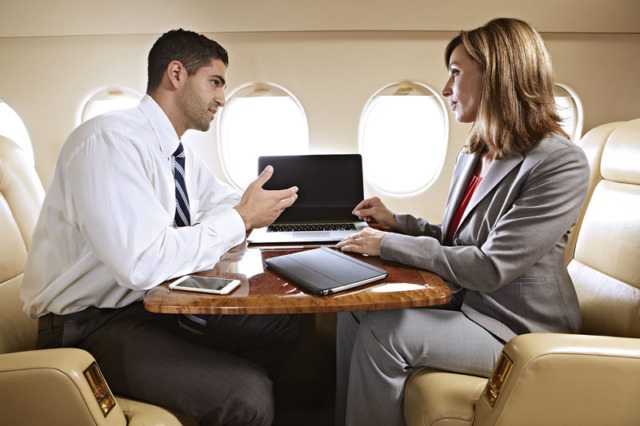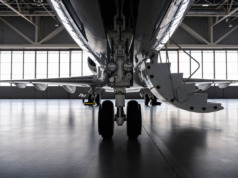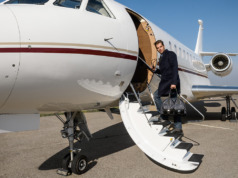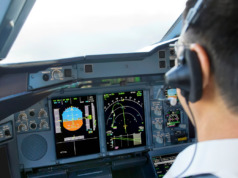
As business aircraft technology continues to evolve, so does the role of the flight attendant. In the past, the “cabin server” focused on catering and the dietary needs of passengers, as well as their comfort. Today’s professional flight attendants are trained in first aid, as well as in procedures to assist in the necessity of evacuation of the aircraft, along with its technology. (See “Taking Attendants,” BAA, July/August 2016.)
Many flight attendants today choose to advance their education by completing a higher level of medical training. A number of Fortune 100 organizations now require that their flight attendants have Emergency Medical Technician (EMT) or First Responder certifications. This advanced medical knowledge available in your cabin can save your life, or that of your crew members.
For example, three years ago, during a meeting of Cabin Managers, one attendee suffered a stroke. The stroke victim herself holds an EMT certification. Since this well-trained group was able to identify the symptoms so quickly, the individual received prompt medical attention afforded to only 7% of stroke victims, and recovered with no lasting damage.
And since today’s cabin amenities are much more complex and technologically sophisticated, the latest iteration of advanced flight attendant training includes expertise in aircraft connectivity systems.
Flight attendants’ pre-departure primary duties include a thorough review of the pre-flight safety checklists onboard the aircraft and specific to each make and model of aircraft. Today, they spend an additional thirty to forty minutes to ensure that Wi-Fi, Hulu, Apple TV, K-Bands, and all the other satellite connections are working properly and efficiently. To gain this level of knowledge of the systems onboard, they take courses offered by service providers (such as Viasat, GoGo, SmartSky Networks, Satcom Direct, and FlightSafety International) so as to become experts in the onboard systems and satellites. And they now work more closely with Original Equipment Manufacturers (OEMs), maintenance, and service providers to be able to answer your questions and ensure that all aspects of connections go smoothly while flying at altitude. Just like the intense medical training, a certification “AeroCNCT” (Crewmember Network and Connectivity Training) is offered through Satcom Direct, which meets all industry standards in a three-year span.
Speed Bumps
While the speed of these connective services can be a challenge due to the global positioning of the aircraft, one large “speed bump” is the amount of electronics that are actively “on” the systems at all times. A typical flight, with three crew members and six passengers, could have as many as 36 electronic devices onboard: one or two phones, a tablet, and one laptop per person. Having all these units logged in simultaneously can have a detrimental impact on the speed of the connections and on the reception, so it’s best to turn off and disconnect the Wi-Fi modes of all devices not currently in use. The flight attendants and crew often can analyze the amount of Wi-Fi and speed being used.
Since modern aircraft now have such an extended range and time in the air, cabins are considered off-site offices. Concerned that the connectivity is working properly, zealous administrative assistants may send messages directly to the cockpit or flight attendant, if the lead passengers do not respond promptly to emails or messages; often forgetting that sleep is essential for the passengers to be ready for meetings at their destination. Today’s flight attendant helps to protect your well-being, as well as keeping confidential any in-flight communications.
The knowledge and resources today’s flight attendant provide for you far exceeds former expectations of a smiling helper who makes a great cup of coffee. He or she is a highly-trained professional whose primary duty is your safety and security and tries his or her best to keep you connected to the “home” office. BAA
Amy Nelson, a Cabin Manager Specialist, was the Manager of Cabin Services at TAG Aviation USA and most recently Flight Attendant Supervisor at ConocoPhillips Alaska. She holds a master’s degree from Embry Riddle Aeronautical University.




